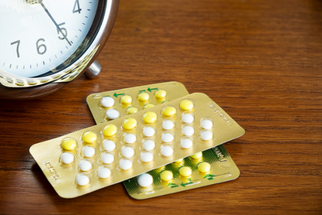Effects of Medications on Sexual Function
What You Need to Know
Let’s talk about something that doesn’t always come up in conversations with your doctor—how medications can impact your sexual function. Yes, that little pill you take every day for your blood pressure or that antidepressant you’ve been prescribed could be playing a role in your sexual wellness. It’s like having a double-edged sword—on one hand, the medication is managing a health condition, but on the other, it might be throwing a wrench into your sexual performance or libido. Understanding these effects is key to finding balance and maintaining a healthy sex life.
How Medications Can Impact Sexual Function
Medications can affect sexual function in various ways, from decreasing libido to causing difficulties with arousal, performance, or orgasm. These effects can vary widely depending on the type of medication, dosage, and individual response. It’s like each person’s body is a unique puzzle, and sometimes, the pieces don’t quite fit together as expected when medications enter the picture.
For instance, many people don’t realize that common medications like antidepressants, blood pressure drugs, and even antihistamines can have side effects that impact sexual health. These effects can be frustrating and confusing, especially when the medication is necessary for managing a chronic condition.
Antidepressants: The Balancing Act Between Mental and Sexual Health
Antidepressants, particularly selective serotonin reuptake inhibitors (SSRIs), are known for their impact on sexual function. While these medications can be lifesaving for those struggling with depression or anxiety, they often come with a catch—reduced libido, delayed orgasm, or even difficulties achieving arousal. It’s like getting a much-needed rainstorm after a drought, only to find out it also flooded your basement.
However, not all hope is lost. If you’re experiencing sexual side effects from antidepressants, talk to your doctor. Sometimes, adjusting the dosage, switching to a different medication, or adding another treatment to counteract these effects can help. Don’t settle for a diminished sex life—there are options out there.
Blood Pressure Medications: Keeping Your Heart Healthy and Your Sex Life Thriving
Blood pressure medications, especially beta-blockers and diuretics, are another common culprit when it comes to sexual dysfunction. These drugs can decrease blood flow, making it difficult to achieve or maintain an erection for men, and can also affect arousal and lubrication in women. It’s like keeping your car’s engine running smoothly, only to find out the brakes are now stuck.
If you suspect your blood pressure medication is affecting your sexual health, don’t stop taking it without consulting your doctor. Instead, discuss your concerns—there may be alternative medications or treatments that can manage your blood pressure without sacrificing your sexual wellness.
Antihistamines: Clearing Your Allergies, but at What Cost?
Antihistamines are great for tackling allergies, but they can also dry out more than just your sinuses. These medications can lead to decreased vaginal lubrication in women and erectile difficulties in men, making sex less comfortable or enjoyable. It’s like trying to enjoy a day at the beach only to find the water has dried up.
Fortunately, these effects are usually temporary and resolve once you stop taking the medication. If you need to take antihistamines regularly, consider using a good lubricant or talking to your doctor about ways to minimize these side effects.
A Real-Life Example: Navigating Medication Side Effects with Confidence
Let’s talk about Lisa, a 40-year-old woman who was prescribed an SSRI for anxiety. While the medication worked wonders for her mental health, she noticed a significant drop in her sexual desire and found it difficult to reach orgasm. Frustrated but determined, Lisa spoke with her doctor, who suggested trying a lower dose and incorporating a “medication holiday” under close supervision. This approach helped Lisa regain her sexual satisfaction without compromising her mental health. Lisa’s story shows that you don’t have to choose between your mental health and your sex life—there are ways to balance both.
Managing Medication-Induced Sexual Dysfunction
If you’re experiencing sexual side effects from a medication, it’s important to address the issue with your healthcare provider. Here are some strategies that might help:
- Adjusting the Dosage: Sometimes, a lower dose of medication can reduce side effects while still effectively managing your condition.
- Switching Medications: Not all medications in the same class have the same impact on sexual function. Your doctor may be able to prescribe an alternative with fewer side effects.
- Timing Your Medication: Taking your medication at a different time of day might help minimize its impact on your sexual function.
- Adding a Medication: In some cases, adding a medication that specifically targets sexual dysfunction can help counteract the side effects.
- Using Lubricants or Other Aids: For those experiencing dryness or discomfort, using a high-quality lubricant or other sexual aids can improve comfort and enjoyment.
An Empowered Approach to Your Sexual Health
Your sexual health is an important part of your overall well-being, and it’s essential to take an active role in managing it. If you’re dealing with medication-induced sexual dysfunction, remember that you have options. By working closely with your healthcare provider, you can find solutions that allow you to maintain both your health and your sexual satisfaction.
So, don’t shy away from these conversations. You deserve to feel empowered, supported, and in control of your sexual health, no matter what medications you’re taking. Here’s to finding that perfect balance and living a life full of confidence and joy!

